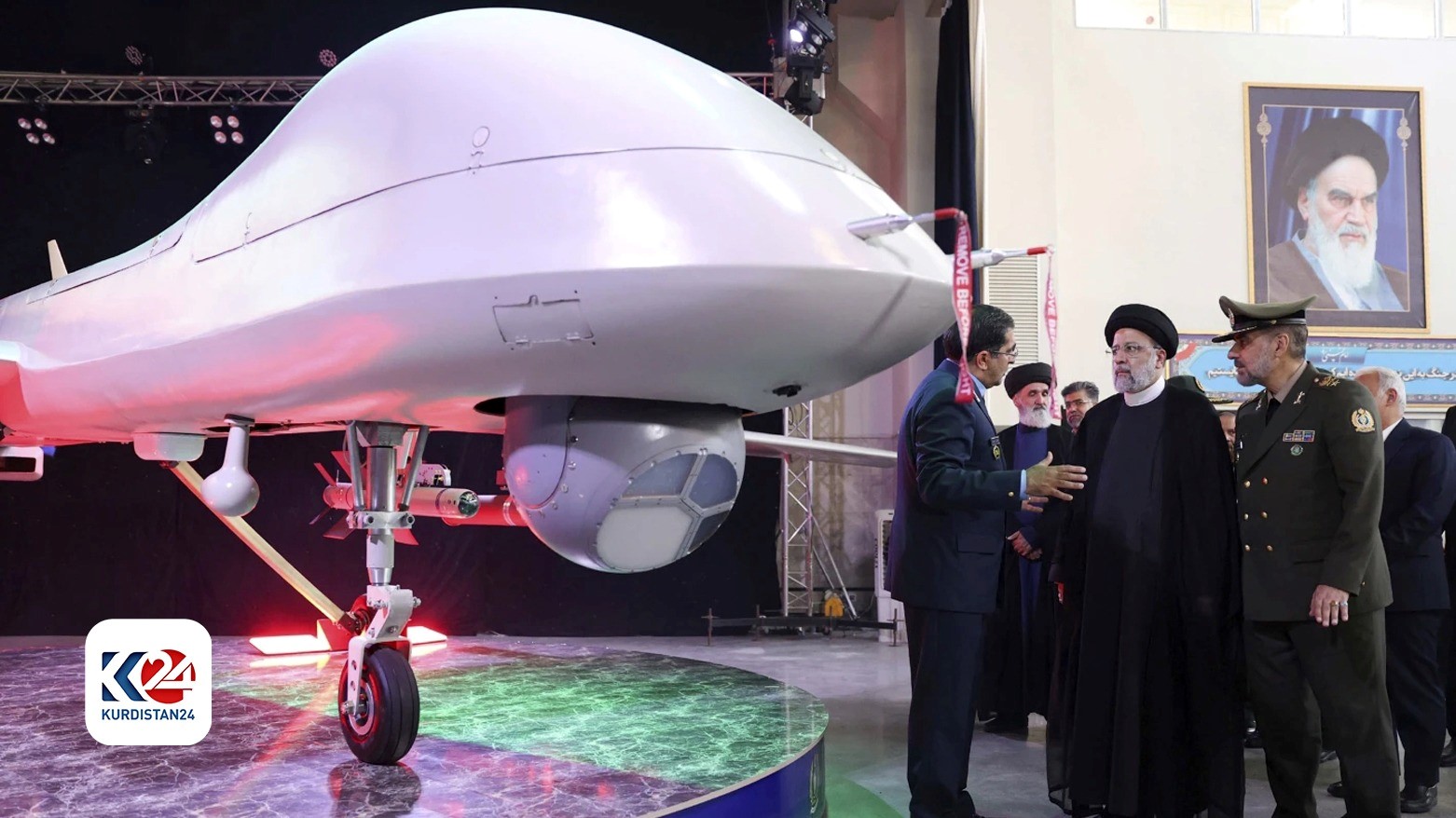U.S., EU Sanction Iran for Providing Drones to Russia, ‘Militant Proxies and Partners’
As Miller said, “We applaud the first use of the EU’s new sanctions authority targeting Iranian destabilizing behavior and support for terrorism in the Middle East.”

WASHINGTON DC, United States (Kurdistan 24) – State Department Spokesperson Matthew Miller announced on Monday that the U.S., in conjunction with the European Union, was imposing sanctions on Iran’s Unmanned Aerial Vehicles (UAVs), or drone, industry for its role in supporting Russia’s war against Ukraine, as well as providing them to “militant proxies and partners” which “prolong conflict and destabilize the region.”
Miller lauded the parallel EU measures, saying, “We applaud the first use of the EU’s new sanctions authority targeting Iranian destabilizing behavior and support for terrorism in the Middle East.”
Thus, Monday’s measures would appear to reflect a toughening of the EU position on Iran, which has long been softer than that of the U.S.
The stiffening of the EU position goes back nearly a year and reflects a belated understanding that Iran is aligned with Russia—even while Russia is engaged in a full-scale assault on a European country.
On July 20, 2023, the EU initiated a new sanctions regime. As the Council announced, it had “decided to broaden the scope” of its sanctions regime “in view of Iran’s military support for Russia’s war of aggression against Ukraine.”
Nearly a year later, on May 14, 2024, the Council “decided to broaden the scope of the sanctions regime in view of Iran’s military support for armed groups in the Middle East and Red Sea region.”
The Kurdistan Region has been one target of such Iranian-backed assaults. Most recently, and dramatically, that occurred with the drone attacks on the Khor Mor gas field. The attack, which occurred in late April, killed four Yemeni workers, and, temporarily, caused a significant reduction in electricity production.
Read More: Security sources confirm attack on Khor Mor gas field from within Iraq
The U.S.has long imposed sanctions on Iran’s drone industry, although the efficacy of those measures might be questioned, as the sanctions do not appear to have set that industry back in any significant way.
Already in 2017, the U.S. sanctioned the Tehran-based Rayan Roshd Afzar Company, which is linked to Iran’s Islamic Revolutionary Guard Corps (IRGC.)
The U.S. Department of Justice describes it as “a technology company” that produces “technical components for Iran’s unmanned aerial vehicle program” and which also works “to produce software for the Iranian aerospace program.”
The latest U.S. sanctions target four Iranian companies associated with Rayan Roshd Afzar. In addition, the head of Iran Aviation Industries Organization (IAIO), a government entity and subsidiary of Iran’s Ministry of Defense and Armed Forces Logistics, was also designated for sanctions.
The head of the IAIO is Brig. Gen. Afshin Kajeh Fard. He “oversees IAIO’s efforts to produce UAVs and missiles, and he has touted Iran’s innovation with respect to its UAV program and its reduced reliance on foreign suppliers,” the Treasury Department said, as it announced the new sanctions.